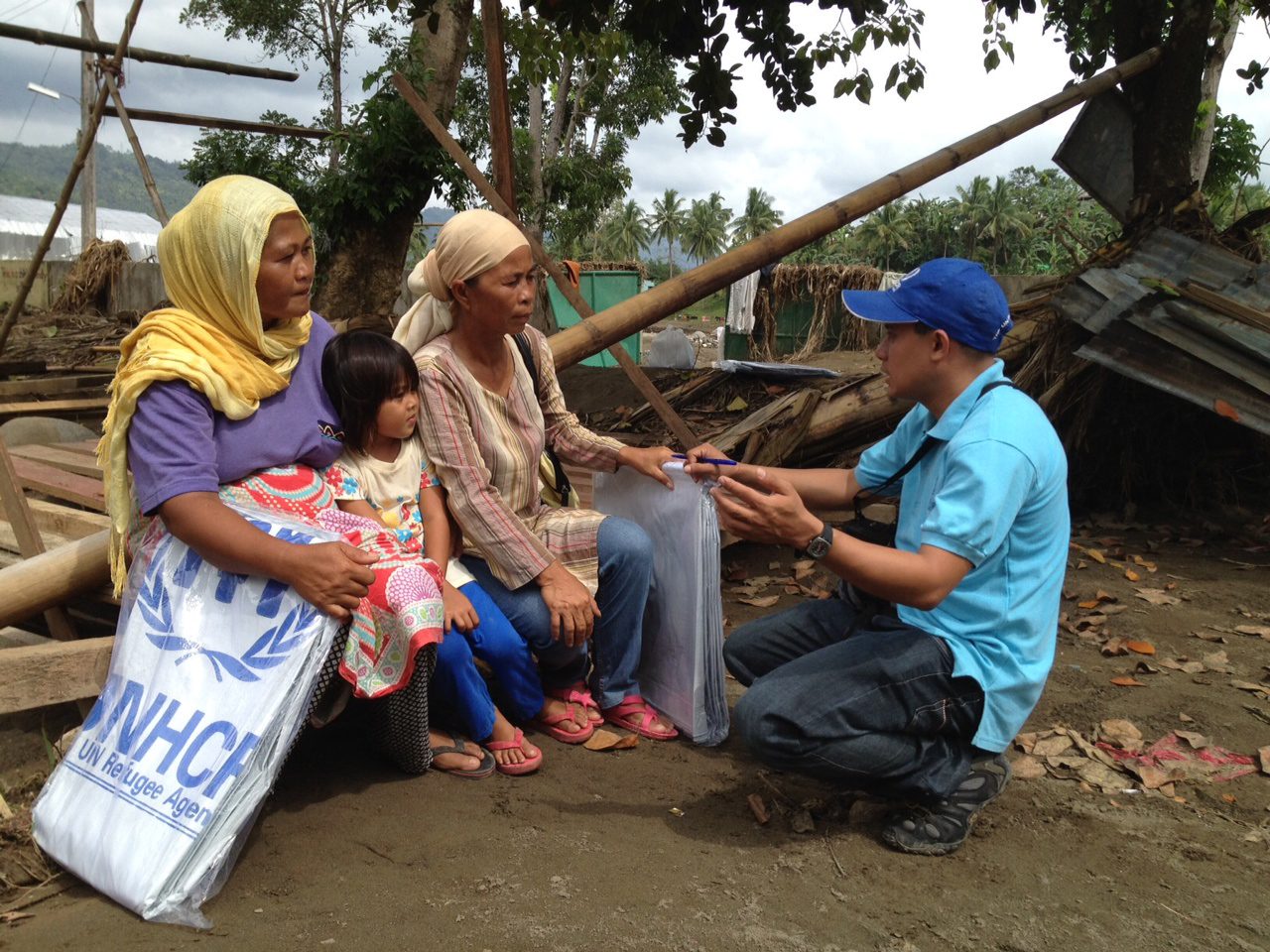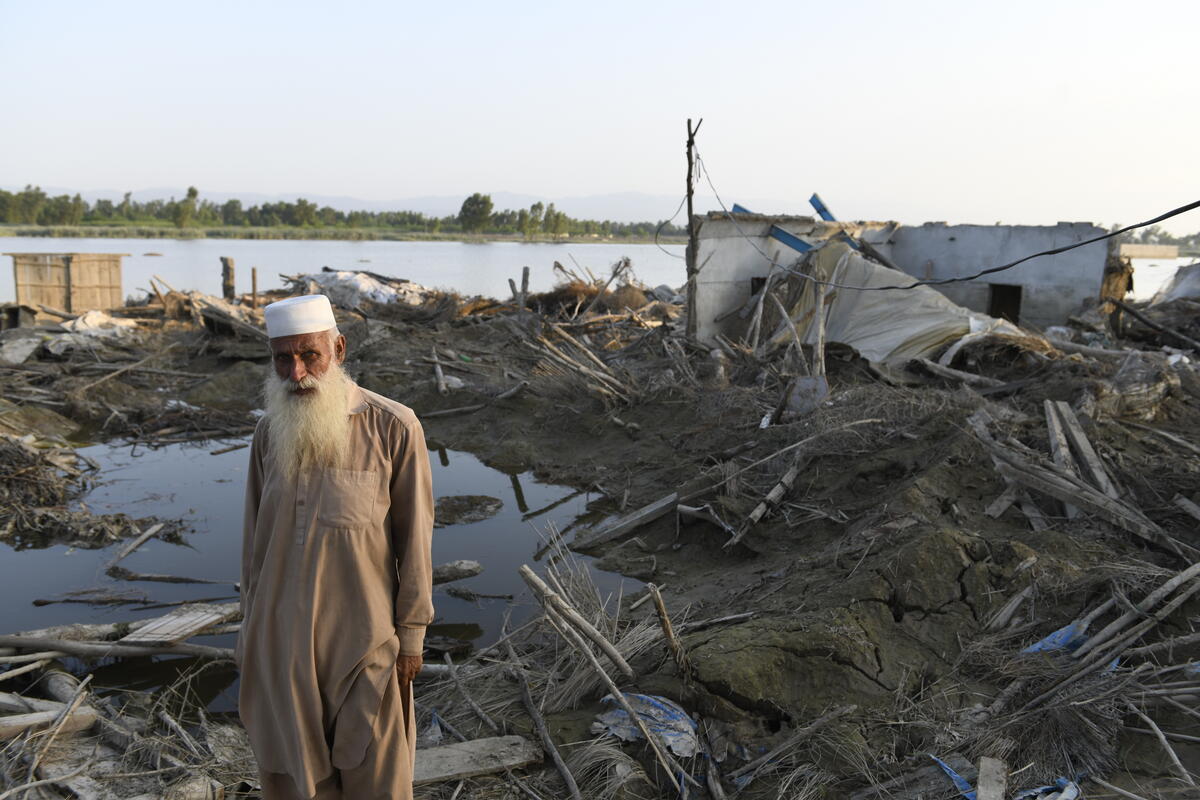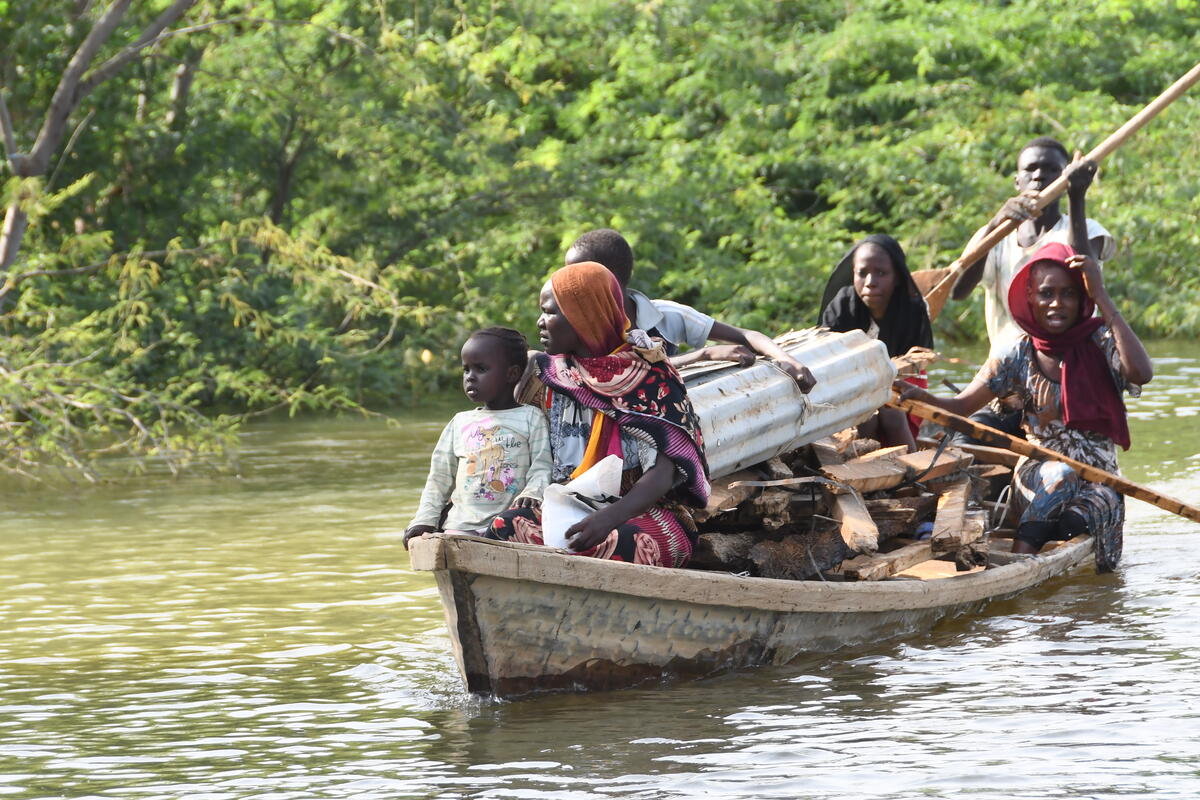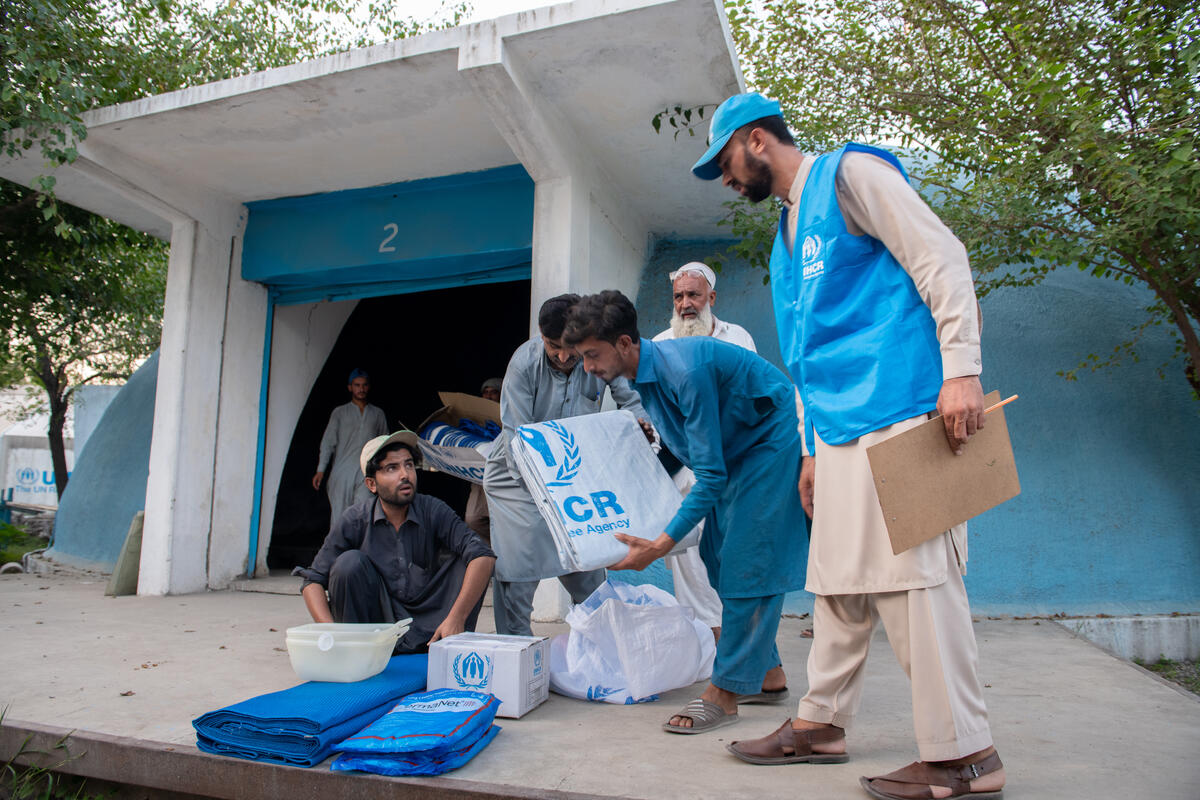In flood-hit Philippines, UNHCR aid offers a glimmer of hope
In flood-hit Philippines, UNHCR aid offers a glimmer of hope

UNHCR's Rasul Kulat with beneficiaries Imelda Angud and Dairi Bansil in the ruins of Bansil's house in Mandulog village, northern Mindanao island.
MANDULOG, Philippines, December 28 (UNHCR) - After surviving decades of conflict, Imelda Anugud never expected it would be the wrath of nature that finally destroyed her home.
"We were asleep when the river began to flood our home around midnight," said the 43-year-old mother of three girls, recalling how, just over a week ago, tropical storm Washi hit the village she has always called home.
"We left everything, crossed the river and ran for higher ground," the shaken woman said. "Within two hours, our home and the bridge we had crossed to get to safety were washed away."
On Wednesday the first glimmer of recovery arrived when UNHCR became the first aid agency to deliver relief supplies to her mountain village east of Iligan city in the Philippines' southern Mindanao island.
This is not the first time residents of this largely Moro (Muslim) community have been displaced. In 2010, the most recent chapter in the long-running conflict between the Moro Islamic Liberation Front and the Philippine government sent them packing. Just over a month ago, a family feud, known here as a rido, which can be epic and deadly, forced them to flee their village.
The UN refugee agency began working with communities affected by the Mindanao conflict in May 2010. Shortly after tropical storm Washi hit, it joined the UN response to support government relief efforts, as the lead agency for the protection cluster. UNHCR decided to target its first emergency assistance to communities that have suffered a double whammy - weakened by years of conflict and now hit by floods.
On December 23, the agency started flying in supplies from its warehouses in Dubai. Plastic sheeting was distributed within 24 hours to provide emergency shelter for at least 10,000 people who have lost their homes to the floods, among the worst ever to hit the Philippines.
Other supplies include some 10,000 blankets, 4,000 jerry cans, and more than 2,000 kitchen sets (cooking pots, pans, bowls, knives, cups and cutlery), each of which will help a family of five prepare their own food.
"This plastic sheet is the first step in rebuilding our lives and our homes," said Imelda's friend and neighbour, Dairi Bansil, who also has three children.
Until last weekend, the Baug and Kapai rivers, which meet in this mountain village, had never overflowed the embankment walls. But once they did, landslides cut the village off from the rest of the country, and government officials did not even know these highlands had been affected.
Even for a community hardened by years of conflict, these floods were more devastating than anything else they have experienced. Their three-room school was washed off its foundations and deposited 100 metres away.
"I don't know what we are going to do. I am still in shock and living a day at a time," Dairi said. "I may leave this village because of the trauma I am facing. "We lost everything: our home, my kitchen equipment, clothes, absolutely everything."
Distribution of UNHCR's relief items is done through national non-governmental organizations who have been working with the communities for years.
"In helping communities recover from conflict, our approach has been to fund quick, relatively low-cost projects (sewing centres, fishing boats with nets, water wells, and market stalls) that involve entire communities," Bernard Kerblat, UNHCR's representative in the Philippines said last week. The agency plans similar projects to help rebuild fragile communities after the floods.
UNHCR staffers were stunned at the scale of the damage wrought by tropical storm Washi, known locally as Sendong.
"I have been working with communities who are forcibly displaced by the armed conflict affecting Mindanao for the past decades," said UNHCR field associate Rasul Kulat. "My own relatives have been forcibly displaced in the past. But these floods have had a more severe consequence to these villagers than most of the conflicts."
By Arjun Jain
In Mandulog Village, Mindanao, Philippines








